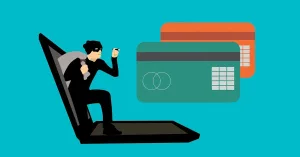Online scams are constantly increasing with the growth of internet technology. Cybercriminals continue to find new ways to trick people and steal information, from phishing emails to identity theft. But don’t worry—here, we've compiled some advice from former hackers who have executed these things.
Former hackers, many of whom become cybersecurity experts, offer a rare look into how cybercrime works. They know the tricks, tools, and methods criminals use because they once used them themselves. Now, they use that knowledge to help others stay safe.
This article shares practical tips from former hackers to help you protect your data, avoid scams, and take control of your online security before fraud even begins.
Why Former Hackers Are Worth Listening To
Many people in cybersecurity study hacking techniques from books or through labs. But former hackers learned from real-world experience. They understand how scams are planned, how security systems are broken, and most importantly, how mistakes are made.
Some of the most well-known ethical hackers now work with companies and governments to stop cybercrime. Their advice is useful for everyday users and small businesses that lack deep technical knowledge.
Common Mistakes That Make You a Target
Former hackers agree that most cyberattacks don’t rely on fancy tools. Instead, they rely on human error. Here are some of the most common mistakes that open the door to online fraud:
1. Reusing Passwords
Many people use the same password across multiple websites. It can be risky because if one site is hacked, all accounts with that password become vulnerable. Hackers often use a method called “credential stuffing,” where they take stolen usernames and passwords from one site and try them on many others.
Advice: Use a unique password for every account. A password manager can help you keep tracking safely.
2. Falling for Phishing Emails
Phishing emails look like they come from trusted sources, such as banks, delivery services, or even friends. They trick people into clicking fake links or downloading harmful files.
Advice: Always check the sender’s email address, and don’t click links unless you’re sure they’re safe. If you have doubts, visit the company’s website directly instead of using links in emails.
3. Ignoring Software Updates
Outdated software is one of the easiest ways for hackers to break into systems. Older versions often have some weaknesses that criminals can exploit.
Advice: Keep your operating system, browser, and apps updated. Enable automatic updates whenever possible.
4. Oversharing Online
Cybercriminals often use public information from social media to guess passwords, answer security questions, or create convincing scams.
Advice: Think before you share. Avoid posting personal details like your birthday, address, or vacation plans.
Smart Habits to Keep You Safe
Former hackers say that most online threats can be avoided by adopting good habits. These habits don’t require technical skills; they just need consistency.
1. Use Two-Factor Authentication (2FA)
This adds a second step when logging into accounts, such as a text message or an app code. If a hacker gets your password, they won’t be able to get in without that second step.
Tip: Turn on 2FA for your email, banking, and social media accounts. Use an authenticator app instead of SMS for better security.
2. Learn to Spot Red Flags
Cybercriminals often create a sense of urgency, such as saying your account will be closed or you must act now. This pressure makes people act quickly without thinking.
Tip: If a message feels urgent or strange, pause. Take a few moments to check it out before responding. Legitimate companies don’t usually pressure you in this way.
3. Avoid Public Wi-Fi for Sensitive Tasks
Public networks, like those in coffee shops or airports, can be unsafe. Hackers may set up fake Wi-Fi networks or intercept data.
Tip: Don’t log into bank accounts or enter passwords when using public Wi-Fi. If you must, use a VPN to add a layer of protection.
4. Be Cautious with Downloads
Malware often hides in email attachments, fake software, or even browser extensions.
Tip: Only download software from official websites or trusted sources. Avoid clicking “free download” links on random pages.
What Businesses Can Learn from Former Hackers
Cyberattacks target individuals and small businesses. Small and medium-sized businesses are common targets because they often lack strong security measures.
1. Train Employees
Many attacks start with a simple email. If employees can recognize scams, they can stop problems before they start.
Tip: Regular training sessions on online safety can reduce risk. Simulated phishing tests can also help staff stay alert.
2. Limit Access to Information
Former hackers say that many breaches happen because too many people have access to sensitive data.
Tip: Use “least privilege” access—give employees only the access they need to do their jobs.
3. Monitor for Strange Activity
Hackers often test systems slowly before launching a full attack. Watching for small, unusual behaviors can help catch them early.
Tip: Use monitoring tools that alert you to strange login locations, repeated login attempts, or changes in user behavior.
How Hackers Choose Their Targets?
One surprising tip from former hackers: they often look for easy wins. They don’t waste time on hard targets when so many easy ones are available.
Some of the traits that make someone an easy target include:
- Weak or repeated passwords
- No 2FA on important accounts
- Clicking links without checking
- Ignoring system updates
- Sharing personal info online
This means that even basic improvements in your habits can move you out of the danger zone.
Tools Recommended by Former Hackers
While good habits are the best defense, tools can help add extra layers of security. Here are a few tools many ethical hackers recommend:
- Password Managers: Like Bitwarden, 1Password, or KeePass. They create and store strong passwords.
- VPNs: Protect your data on public Wi-Fi and hide your browsing activity.
- Antivirus Programs: Tools like Malwarebytes or Windows Defender help block threats.
- Authenticator Apps: Apps such as Google Authenticator or Authy for safer 2FA.
- Browser Extensions: Tools like uBlock Origin can block harmful ads or trackers.
These tools are easy to set up and make a big difference.
The Human Factor: Stay Aware
Technology alone can’t stop online fraud. It also takes awareness. Former hackers often say that their success depended more on tricking people than on beating software.
This is why staying alert is so important. Many cyberattacks rely on emotions like fear, excitement, or curiosity. Taking a moment to think before clicking, replying, or downloading can often stop a scam in its tracks.
How Social Engineering Tricks You—and How to Outsmart It
Social engineering is when attackers use deception to manipulate people into giving up confidential information. This method often doesn’t involve any hacking tools—it just relies on human behavior.
Common tactics include:
- Pretending to be a coworker or service provider
- Creating fake job offers or delivery notifications
- Using fake tech support calls
How to stay safe:
- Verify identities before sharing information
- Be skeptical of unexpected messages or calls
- Don’t click on links from unknown sources
Why Mobile Devices Are Now a Favorite Target
Phones and tablets hold personal data, banking apps, and access to email and social media—all in one place. Hackers now design malware specifically for mobile platforms.
Warning signs of mobile threats:
- Sudden battery drain
- Unexpected pop-ups or ads
- Apps you didn’t install
What you can do:
- Download apps only from official stores
- Review app permissions carefully
- Keep your device's operating system updated
Frequently Asked Questions (FAQs)
Q1: Can hackers really guess my password that easily?
Yes, especially if you use common words or personal information like your birthdate. Many hackers use automated tools that try millions of combinations quickly.
Q2: What’s the safest way to store my passwords?
A password manager is the safest and most convenient way. It stores strong, unique passwords for every site and fills them in automatically when needed.
Q3: Are free antivirus programs enough?
Free antivirus can offer basic protection, but paid versions often include added features like phishing protection, firewall settings, and secure browsing.
Q4: Is using public Wi-Fi always risky?
It can be, especially without a VPN. Hackers can set up fake hotspots or intercept data on unsecured networks. Avoid logging into sensitive accounts on public Wi-Fi.
Q5: How often should I update my software?
Whenever an update is available, do it. Most fix bugs or known security holes, so delaying them leaves you exposed to risk.
Final Thoughts
Cybercrime isn’t just a problem for big companies. It affects everyone who uses the Internet. The good news is that many online scams are preventable. By learning from those who used to work behind the scenes, we gain insights that can help us avoid danger.
The steps to stay safe online are simple but effective: Use strong passwords, be cautious with emails, turn on two-factor authentication, and keep your software up to date. These steps make you a more challenging target, and that’s often enough to send fraudsters elsewhere.
Sources:
- https://consumer.ftc.gov/
consumer-alerts/2024/08/five- ways-keep-scammers-and- hackers-away - https://www.bradford.ac.uk/
news/archive/2023/ethical- hackers-advice-on-avoiding- online-scams-.php - https://www.wired.com/story/
how-to-prevent-getting-hacked/ - https://www.zdnet.com/article/
cybersecurity-101-everything- on-how-to-protect-your- privacy-and-stay-safe-online/ - https://www.bitdefender.com/
en-us/blog/hotforsecurity/7- common-temu-scams-and-how-to- avoid-them - https://www.kaspersky.com/
resource-center/threats/top- ten-greatest-hackers - https://aag-it.com/the-latest-
cyber-crime-statistics/ - https://cybersecurityventures.
com/today/ - https://www.upguard.com/blog/
types-of-phishing-attacks - https://www.techtarget.com/
searchsecurity/definition/ ethical-hacker



















Add comment